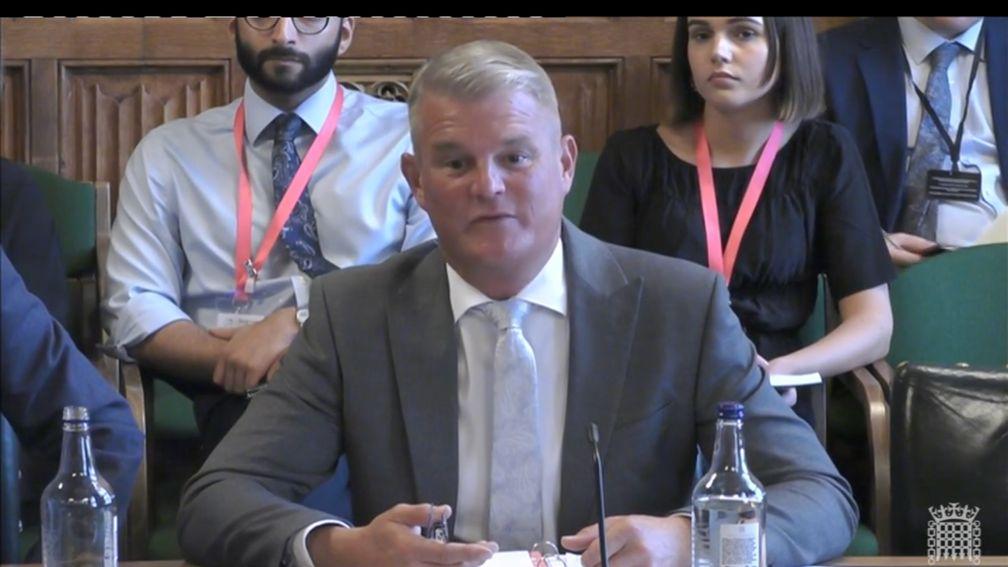'The elephant in the room' - are frictionless affordability checks a flight of fantasy?
Lee Mottershead examines whether a key white paper objective can be realised

This is part two in our Affordability Files series. Part one looked at the claim just 3 per cent of bettors will be affected by affordability checks, while part three examined how the white paper miscalculated the impact of affordability checks on racing.
For more than two years, punters encountering affordability checks have found them to be invasive and infuriating. Bookmakers, carrying out the checks as part of efforts to stay the right side of vaguely worded Gambling Commission customer interaction regulations, have demanded legions of punters hand over personal financial documents, such as payslips and P60s, or face having their accounts frozen or heavily restricted.
These checks have had two unsurprising consequences: they have angered many faced with what they regard as intrusive and unwarranted demands to see sensitive financial information, and many have refused to comply, either abandoning punting or moving to other operators, including black market bookmakers.
It was at least partly in response to these issues that when affordability checks were formally adopted as government policy in the gambling white paper this year, ministers sought to soften their impact on bettors and bookmakers by promising the checks would be "frictionless", meaning they would happen in the background without inconveniencing customers or obviously intruding into their finances.
Specifically, the white paper stated that credit reference agencies (CRAs) would enable the new frictionless regime. For the light-touch checks proposed at spending triggers of £125 in a month or £500 in a year, the government stated that bookmakers should consider "the types of open source indicators which many already routinely assess such as County Court Judgements, average postcode affluence, and declared bankruptcies".
For the enhanced checks that the white paper claimed would concern only three per cent of accounts – those with a net loss of £1,000 in 24 hours or £2,000 in 90 days – the policy document said the government was "working with the financial services sector" to explore how frictionless checks could be enabled, thereby admitting a solution did not yet exist.
However, it added the government expected most checks could be conducted via CRAs providing data such as an "estimate of overall disposable income", with just ten per cent of checks resulting in a requirement for bookmakers to collect financial information directly from customers.
Gambling minister Stuart Andrew went even further in a Racing Post column published to mark the arrival of the white paper, promising a "completely frictionless" system.
"I want to assure Racing Post readers that for the very few players who undergo checks, these will happen in the background against information already publicly available so the process is completely frictionless," wrote Andrew. He was similarly adamant about frictionless needing to mean frictionless when addressing the Digital, Culture, Media and Sport select committee last month, even raising the possibility of testing the new system in a pilot.
The importance of checks being frictionless extends beyond simply delivering on promises made to beleaguered punters and a racing industry fearing its finances will be decimated, however, as failure to do so would mean "both DCMS and the Gambling Commission will be open to legal challenge – which the minister acknowledged before the DCMS committee", according to Bahar Alaeddini, a partner and gambling law specialist with law firm Harris Hagan.
Crucial, then, is whether frictionless affordability checks truly are an attainable goal. The Gambling Commission has repeatedly insisted they are, but has yet to reveal the mechanics that will enable the new regime, while many informed observers continue to harbour grave doubts.

"It entirely depends on what frictionless means," says Alaeddini. "If it means consent-free, this is unlikely to be possible given customers will need to consent to a credit check/open banking. While the government policy objective is clear, the challenge remains implementation and what happens when the technology does not yet exist or doesn't work."
David Zeffman, a partner at law firm CMS, says: "One person's frictionless check could amount to another’s invasion of privacy and, to another, an onerous and unwelcome imposition.
"The Gambling Commission is working with DCMS, UK Finance and the ICO, as well as a number of credit reference agencies, to develop frictionless checks, but given the sensitivity of this information, it is hard to see how a system can be established for its free flow without some burden being imposed on the customer. Accordingly, it is difficult to envisage these being a completely frictionless part of the customer journey.
"It is not clear whether the Gambling Commission's analysis assumes the requisite data are available from third-party providers or open banking. If they are not available – and this is highly sensitive data and so cannot and should not be disseminated easily – the checks will be far from frictionless and customers will be more likely to stop gambling or seek out unlicensed operators."
In its consultation on introducing affordability checks, the Gambling Commission suggested a key tool for establishing affordability would be current account turnover data (Cato). This is a data set held by CRAs mainly used to verify an individual's declared income. For punters without a regular source of income, it could be of little practical use.
Technology entrepreneur Charles Cohen has worked around gambling for two decades and is preparing to launch an open banking-based app for financial checks in the sector.
"Cato is of limited value to this problem," says Cohen. "About 30 per cent of bank accounts are outside the scheme and, for the rest, all Cato gives you is how much goes into an account in total. There is nothing about where it comes from, where it goes or what balances or debts there are. Lenders use Cato only as a tool for checking people aren't making up their earnings on loan applications. It's not much use for affordability checks.
"The good news is there are other sources of data out there that can give a pretty accurate estimate of a person’s income and financial situation, frictionlessly and without relying on patchy Cato data. It’s important that regulations don't mandate specific sources of data when better alternatives exist."
Cohen also shares concerns over the potential for the use of hard credit checks that could have a disastrous impact on those applying for credit in the future, although the Gambling Commission has promised bettors that credit scores will be unaffected by its proposed checks.
"Hard checks on your file are specifically designed for the financial industry to score borrowers," he says. "Imagine there were hard checks showing you are a high-spending gambler? It's very difficult to see how these won't find their way into automated credit scoring models. It won't be long before people are denied credit or required to pay more. Frictionless and harmless are not the same thing."
In a recent paper published by specialist law firm Wiggin, gambling lawyers Steve Ketteley and Chris Elliott also cast doubt on whether frictionless checks would be achievable.

The Wiggin partners wrote: "As no detail is provided on the framework that is being developed to facilitate the sharing of CRA data to enable these 'frictionless’ checks to be completed, it remains a possibility that operators will still be expected to collect information from a greater proportion of customers than is contemplated in the white paper.
"With the increasing scepticism about the achievability of 'frictionless' checks in this context, the focus will turn towards the expectations on operators when they are unable to procure information about customer’s spending power and at what point they must conduct the 'disagreeable' checks the white paper is trying to ensure are avoided for the vast majority."
Since launching its consultation, the Gambling Commission has repeated the white paper's prediction about how many punters it believes will be caught up in those disagreeable checks.
"Our estimate is that at most just 0.3 per cent of account holders would ever be asked to directly provide the additional financial information that operators are already requiring of some consumers," chief executive Andrew Rhodes wrote in a blog posted on September 7.
The critical relevance of this number is that, like the three per cent estimate for the proportion of accounts subject to enhanced checks, it underpins forecasts about the damage to racing. If either prove significant underestimates, the result will be many more bettors caught up in invasive manual affordability checks and a far greater hit to racing's fragile funding.
Asked for her forecast on the likely share of punters who will have to provide documents to continue betting, Alaeddini said: "An educated guess is very significantly higher. As it stands, only the Gambling Commission will have the answers in the 2CV research (unpublished) it has commissioned in tandem to the consultation.
"Customers will refuse manual checks. They are doing that already, moving to the next operator. As non-frictionless checks become consistent and standard across all operators, many will move on to the black market, in the process failing to achieve government's clear policy objective."
In summarising the current situation, Alaeddini paints a stark picture.
"There is a worrying disconnect between government policy and the practical reality," she says.
"It is disappointing that neither DCMS nor the Gambling Commission have published their detailed communications with the ICO and credit reference agencies, which have been ongoing for at least several months. It may be the case that government and the Gambling Commission do not have the answers, yet, or cynically, they do not have the answers they want.
"What we do know is the answers are not in the white paper, which says, 'we assume CRAs can provide frictionless enhanced checks for 80 per cent of customers'. Further, the recent Gambling Commission consultation and Andrew Rhodes's blog are absolutely silent on this point and fail to acknowledge the elephant in the room. The industry and its stakeholders would have greater trust in the Gambling Commission if it acknowledged the size of the elephant – or at least its existence."
To complete the Gambling Commission's consultation on affordability checks, visit racingpost.com/consultation and follow the instructions.
The Racing Post also wants to hear from you: What has been your experience of affordability checks since the white paper was published at the end of April, and what do you think of the government's proposals? Have affordability checks affected your betting behaviour?
It's a chance for your voice to be heard. Email the Racing Post at editor@racingpost.com with the subject 'Affordability checks' to share your experiences, your thoughts about the government's proposals, and your contact details.
The Affordability Files:
Part three: how the white paper miscalculated the impact of affordability checks on racing

Sign up to receive On The Nose, our essential daily newsletter, from the Racing Post. Your unmissable morning feed, direct to your email inbox every morning.
Published on inThe Affordability Files
Last updated
